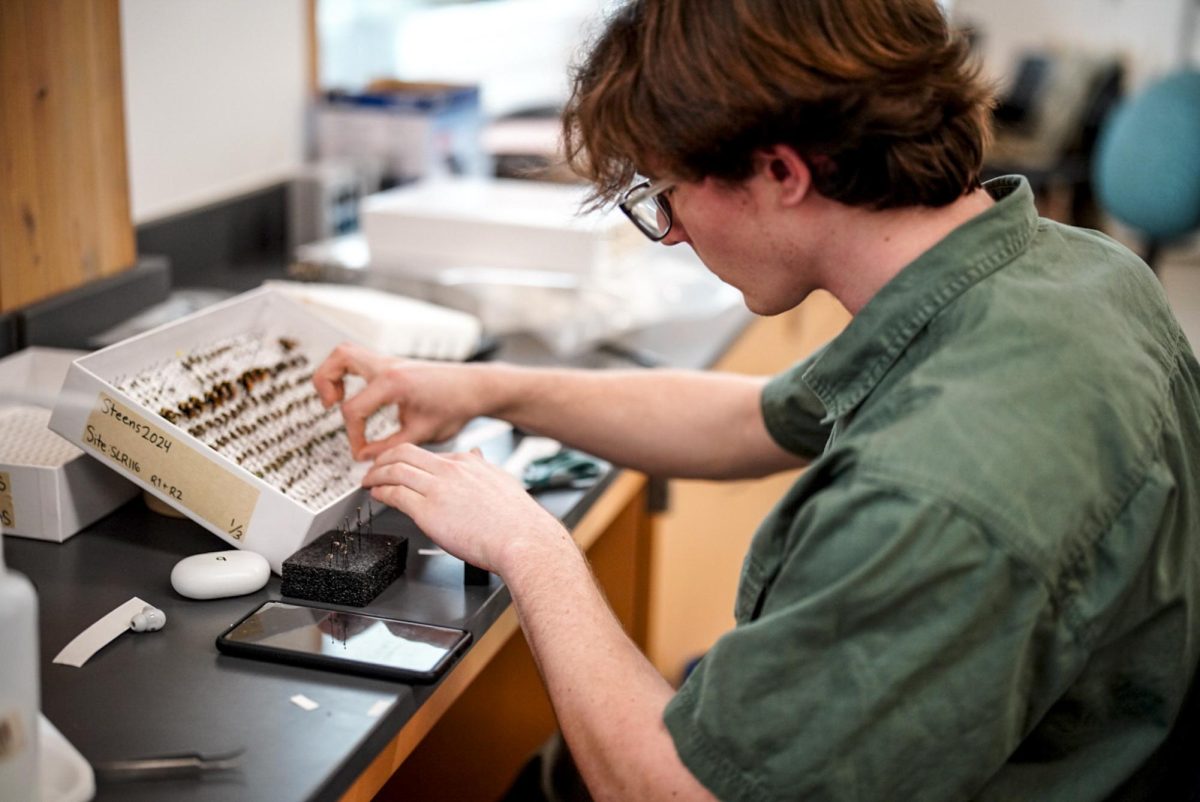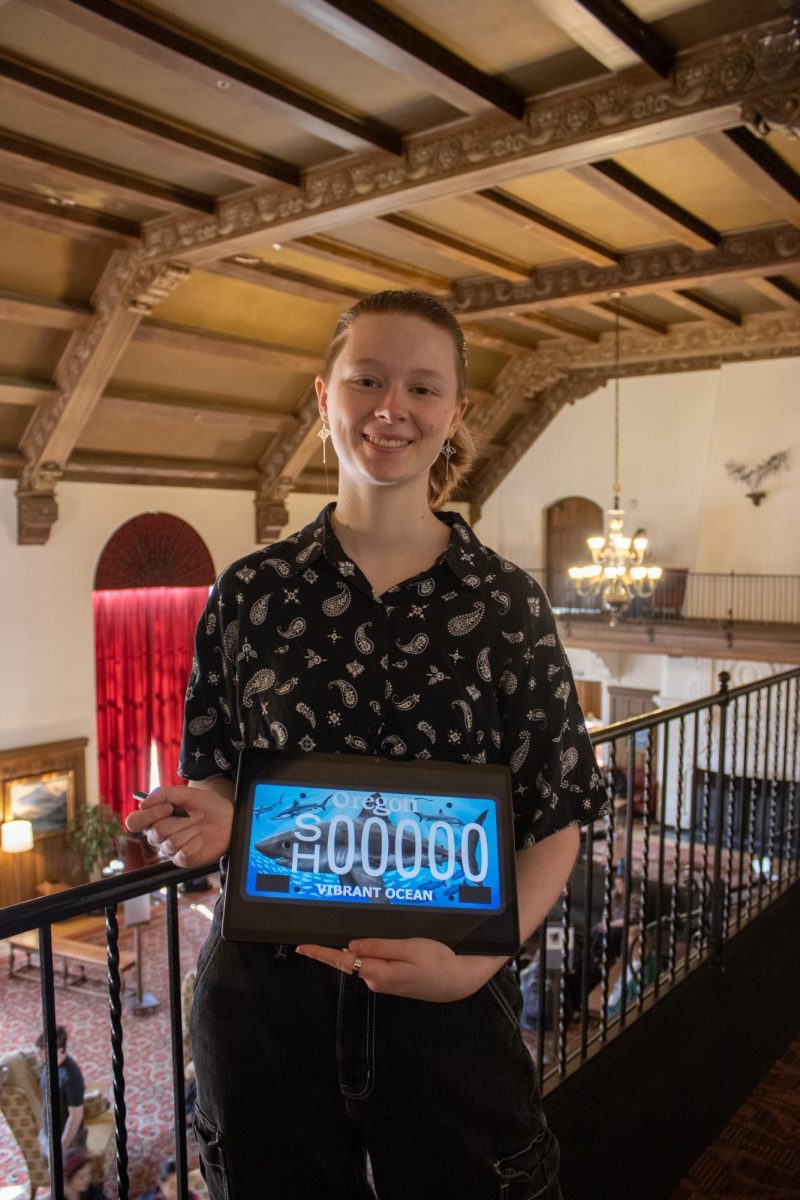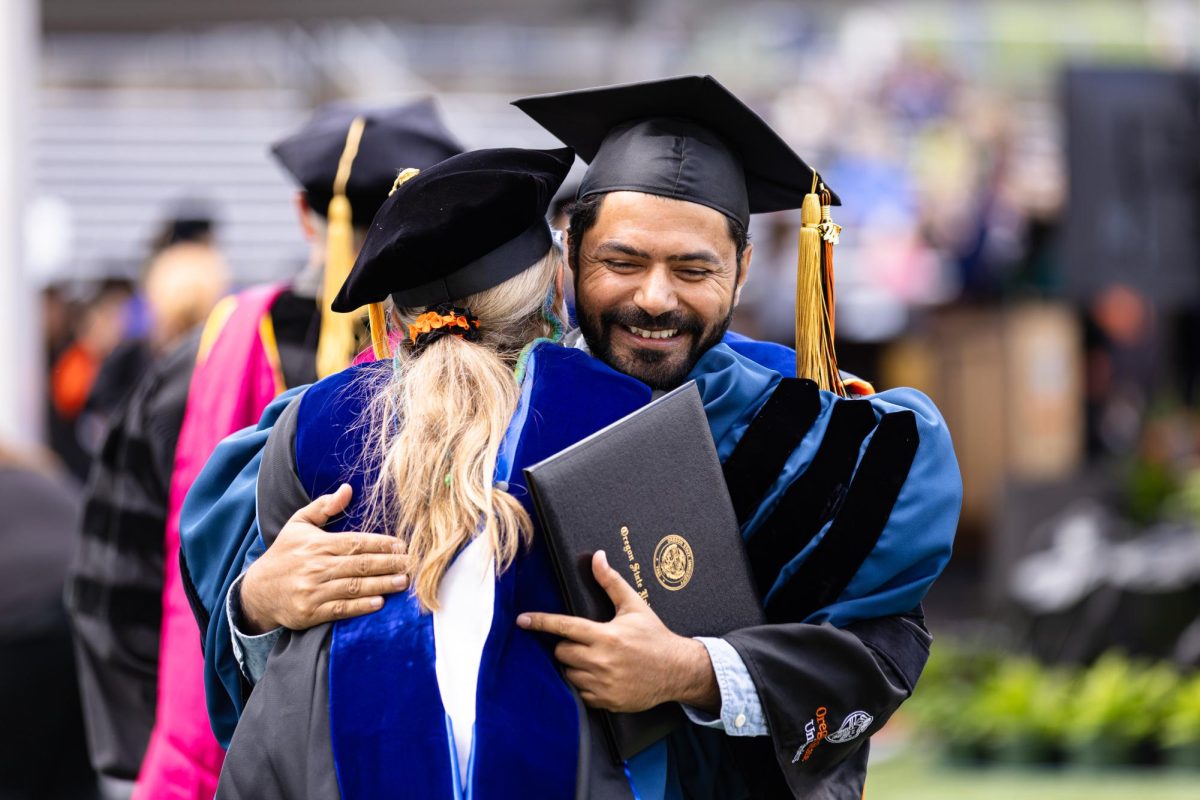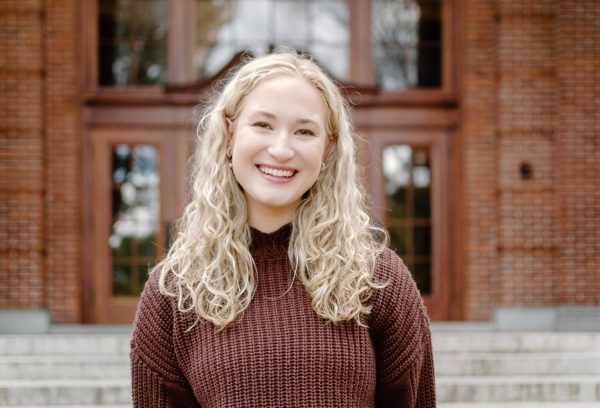Editor’s note: Google Translate was used for some translated quotes
Denys Kryvodubskyi refuses to drink alcohol until the war in Ukraine is over.
When friends are celebrating, Kryvodubskyi always keeps the war at the back of his mind.
Once a cross country skier at school in Kiev where he grew up, Kryvodubskyi could no longer ski after his service as a soldier in the war where he lost his leg during combat. Now, he’s back skiing after his two-week trip to Corvallis.
Russia began its full-scale invasion on Ukraine on February 24, 2022. Combat and air strikes have resulted in over 40,000 civilian casualties with 4 million individuals forced into being internally displaced. Currently, there have been 6.8 million people who have fled Ukraine and 14.6 million people in need of humanitarian aid, according to the Council on Foreign Relations.
One day, Kryvodubskyi received a call from the city of Uzhhorod. He was invited to learn to ski in Oregon, which would be his first visit to the United States. Kryvodubskyi wouldn’t even need a new prosthetic, which can cost thousands of dollars.
From nearly 6,000 miles away, Kryvodubskyi and four other Ukrainian soldiers–all of whom lost a leg fighting against Russia’s invasion of Ukraine–visited Corvallis to learn how to ski.
“I was delighted,” Kryvodubskyi said. “Oregon is an extremely beautiful state. The training was done by professionals, and many volunteers helped with the training, which is also very nice. In general, the people in Oregon seemed friendly and kind to me. And thanks to many people, our vacation and training was fun and comfortable, which definitely affected our outcome.”
Kryvodubskyi, 32, joined the military in Ukraine in 2023 and before that, he worked as a website developer. Alongside skiing, he hopes to return to his profession of building websites.
For two weeks, the soldiers learned adaptive skiing at Hoodoo Ski Resort, with days to explore Corvallis, Oregon State University’s campus and spots along the Oregon Coast.
The soldiers were given ski gear, like coats, gloves and pants, to bring back with them to Ukraine donated by the Corvallis community, according to Carol Paulson, co-founder of the Corvallis Sisters City Association.
Paulson, who created the program, used to teach adaptive skiing to Vietnam war veterans. With her work in CSCA, she discovered that Ukraine has one of the highest populations of individuals with amputations.
According to the Center for European Analysis, the estimate is over 50,000 people with amputations of limbs. However, they predict that the number is far higher.
The adaptive skiing the group learned is known as three-track skiing, with two “outriggers” that act like forearm crutches. The difference, however, is the bottom of the device. Each outrigger has a flat end that mimics a ski. When they enter the ski lodge, however, skiers can pull a string to lift the end and use the outriggers as ski poles for balance.
“Everybody has been so helpful and so wonderful and so eager for this to go back to Ukraine and spread,” Paulson said. “That’s really exciting to me…this group is just fantastic.”
Right now, Kryvodubskyi is fitted with a hydraulic prosthetic leg he often displays by rolling up his pant leg with a smile.
However, it’s impossible to bend properly for skiing, he says. He removes his prosthetic to participate in the three-track skiing.
Alpine Ski coaches Kristian Minai and Nastasiia Kupriyanchuck traveled to Oregon to learn how to instruct adaptive skiing. They currently lead a team of Deaf skiers in the Uzhhorod area.
During their first three days at Hoodoo, Minai said the veterans chose to use their free day to ski. On the third day, they all skied the Black Diamond.
“I am so excited to do this program in Ukraine,” Minai said.
The soldiers and ski instructors were overwhelmed with gratitude by people who stand with Ukraine. They were stopped in the streets of Seattle, Wash. and Newport, Ore. for photos and “thank you’s” for their service and resilience.
“I knew that Americans support us, because I had already heard from the guys who were in America for prosthetics,” Kryvodubskyi said.”I am glad that most of them are with us and support us.”
The soldiers just performed their adaptive skiing at a competition held in Dragobrat—a ski resort in the Transcarpathian Mountains—at the end of March, Kryvodubskyi said in an Instagram message from Ukraine.
The adaptive skiing wasn’t limited to those with amputations of their legs, but open to others who are Deaf, Blind and have amputations of their limbs, Kryvodubskyi said.
Now back in Kiev, Kryvodubskyi hopes to continue skiing and soon start snowboarding. And, until the war is over, he won’t be celebrating with a drink in his hand.
CSCA is currently fundraising to purchase ski outriggers to send to Ukraine to teach more individuals with amputations to ski. Donations can be made on their website.







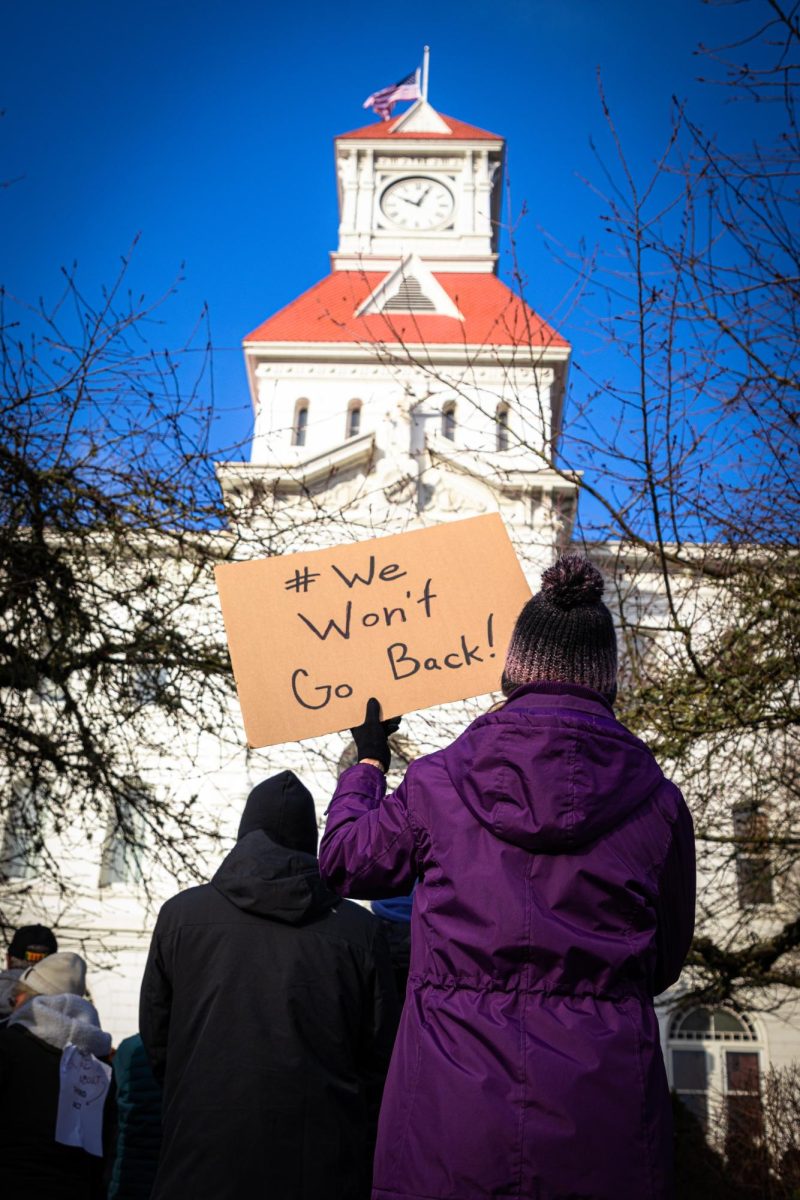

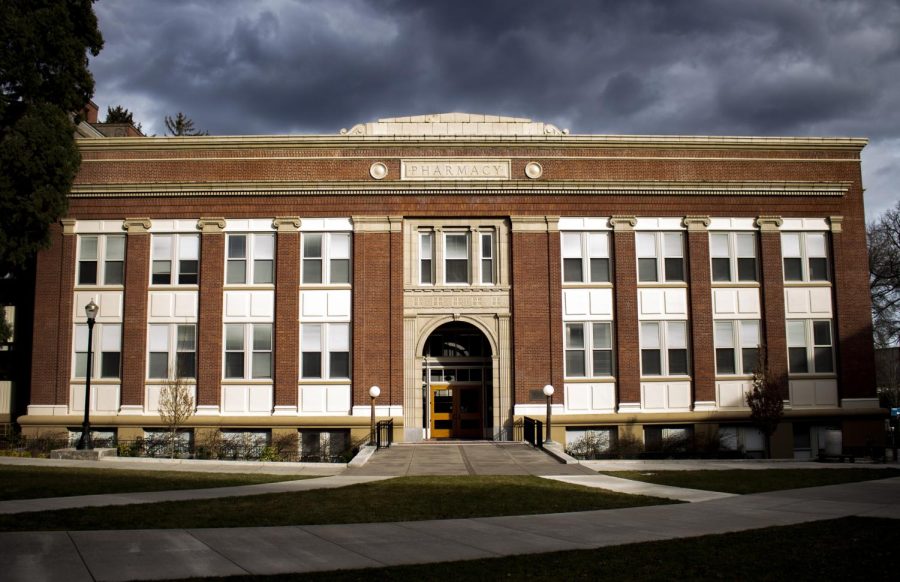
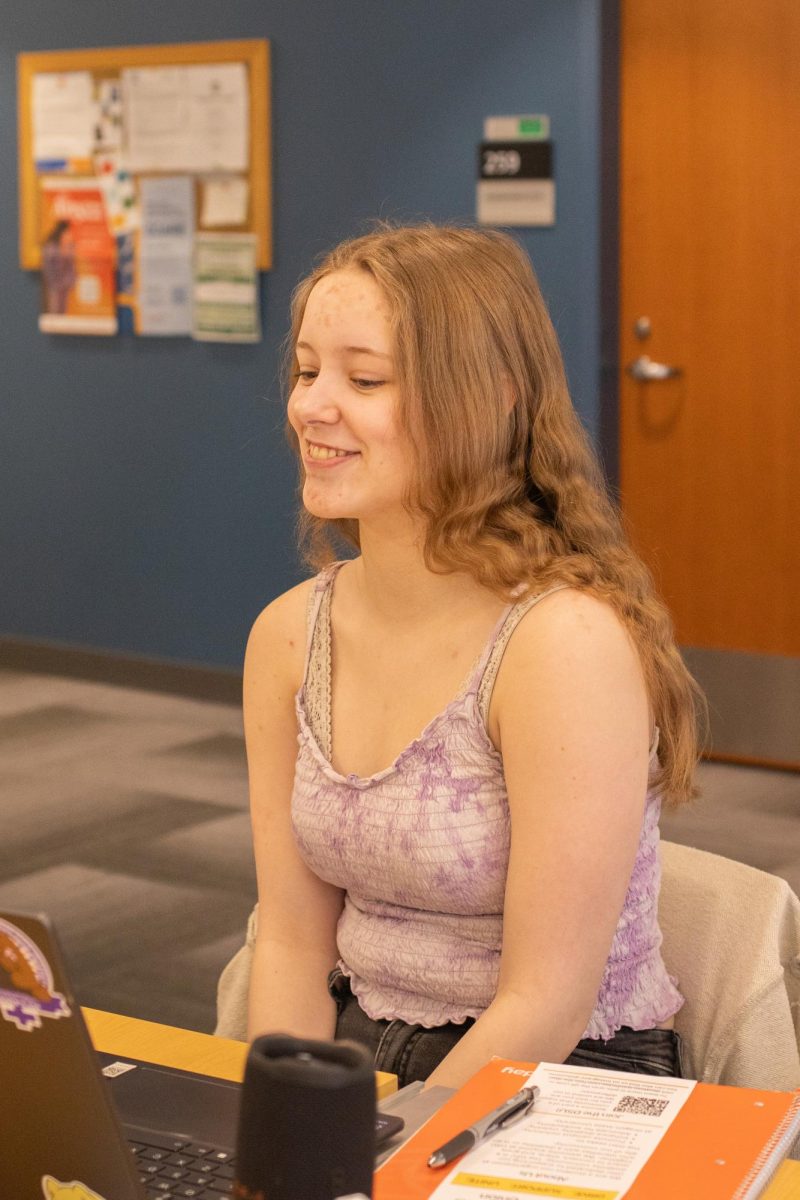
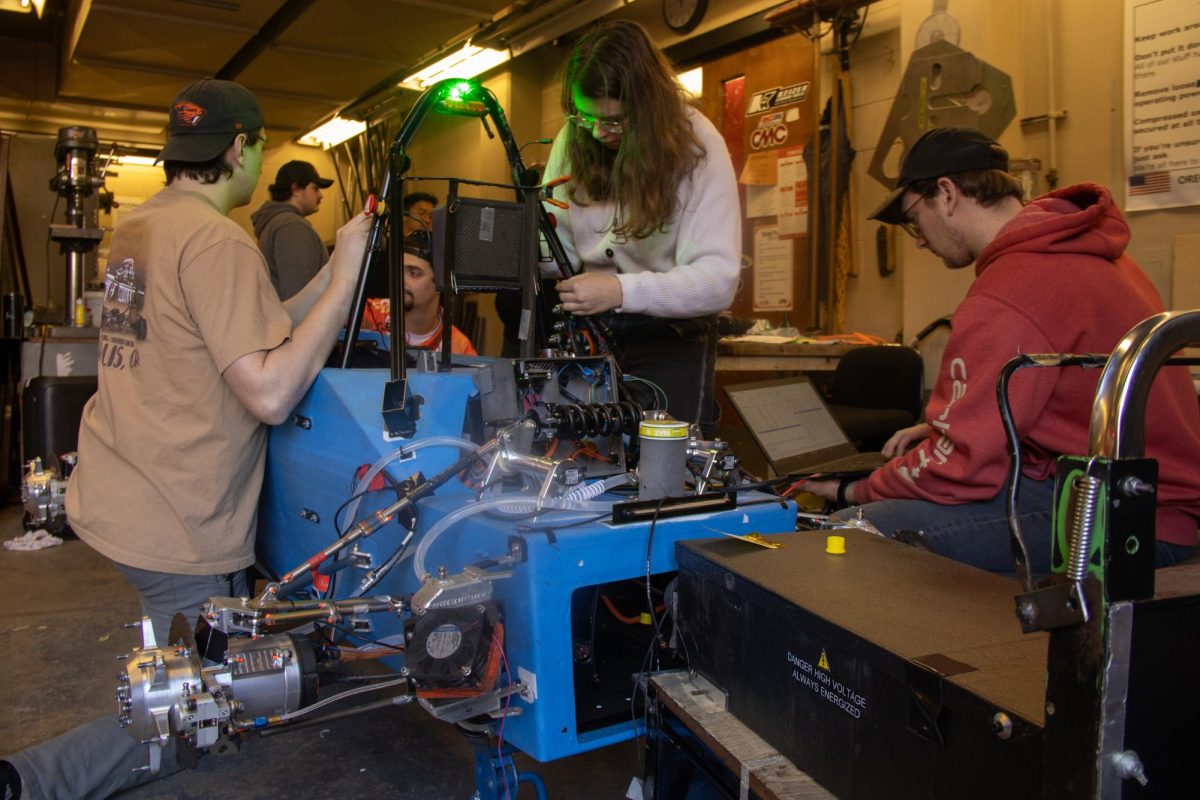
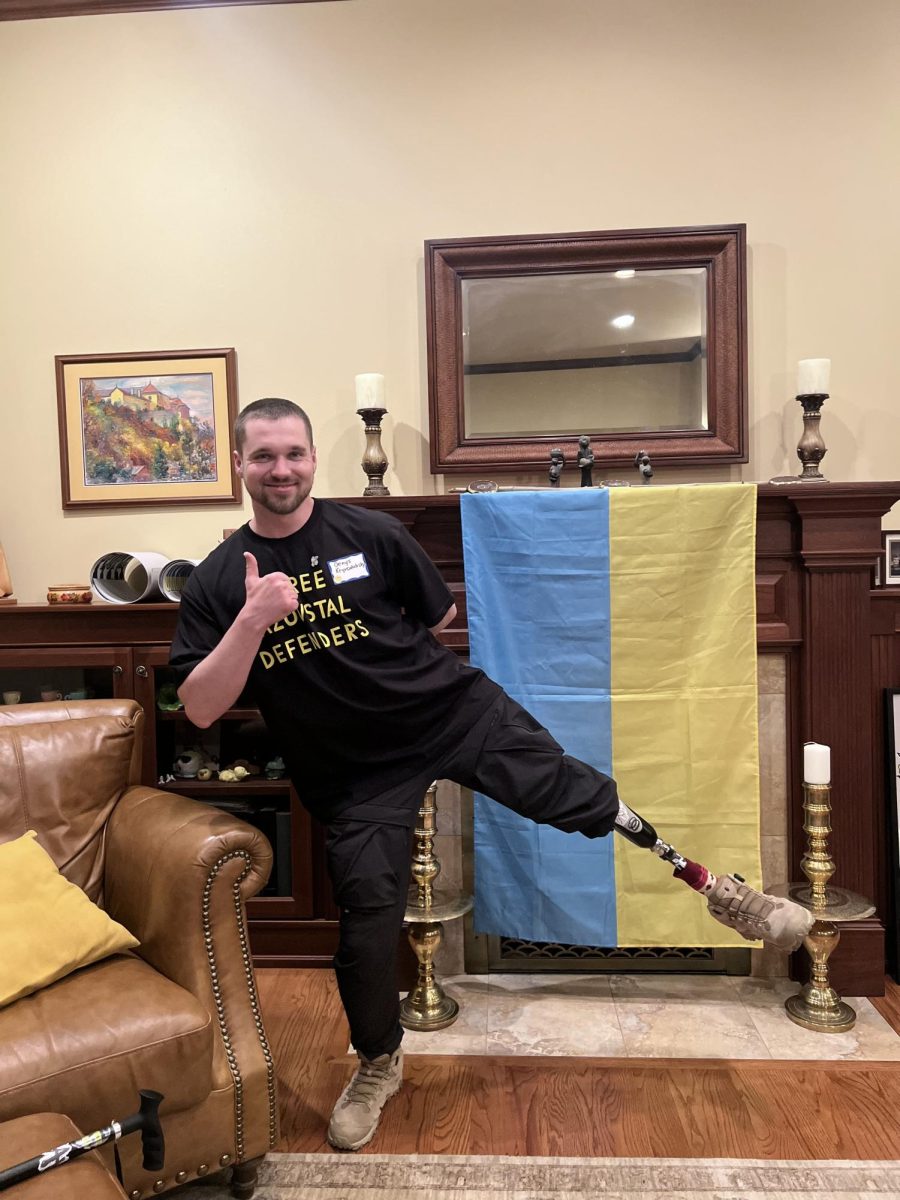


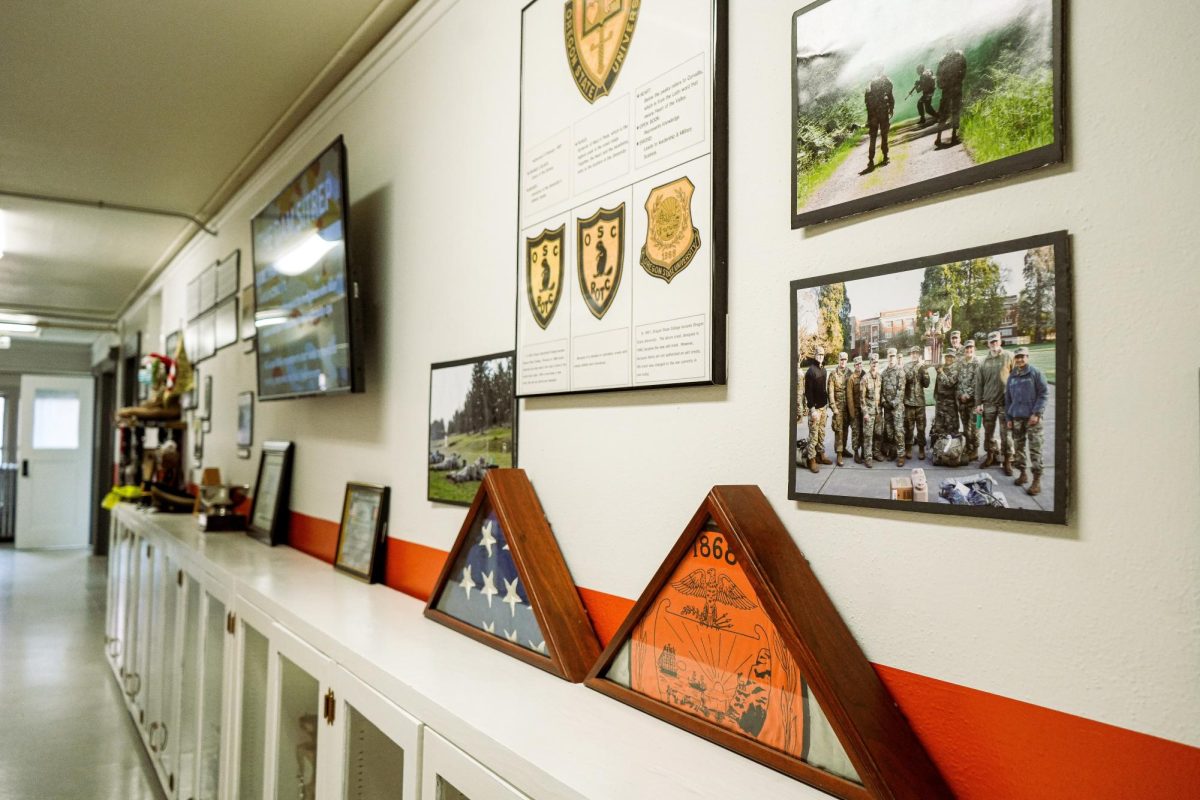
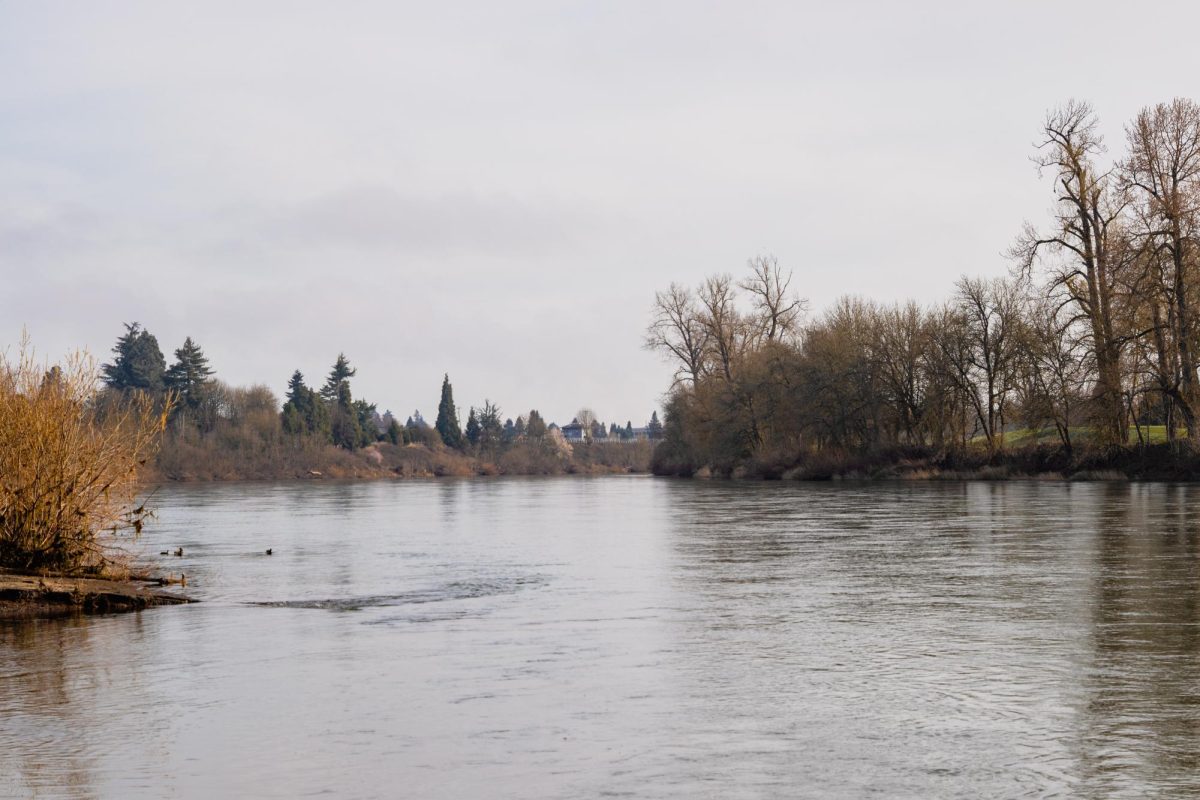









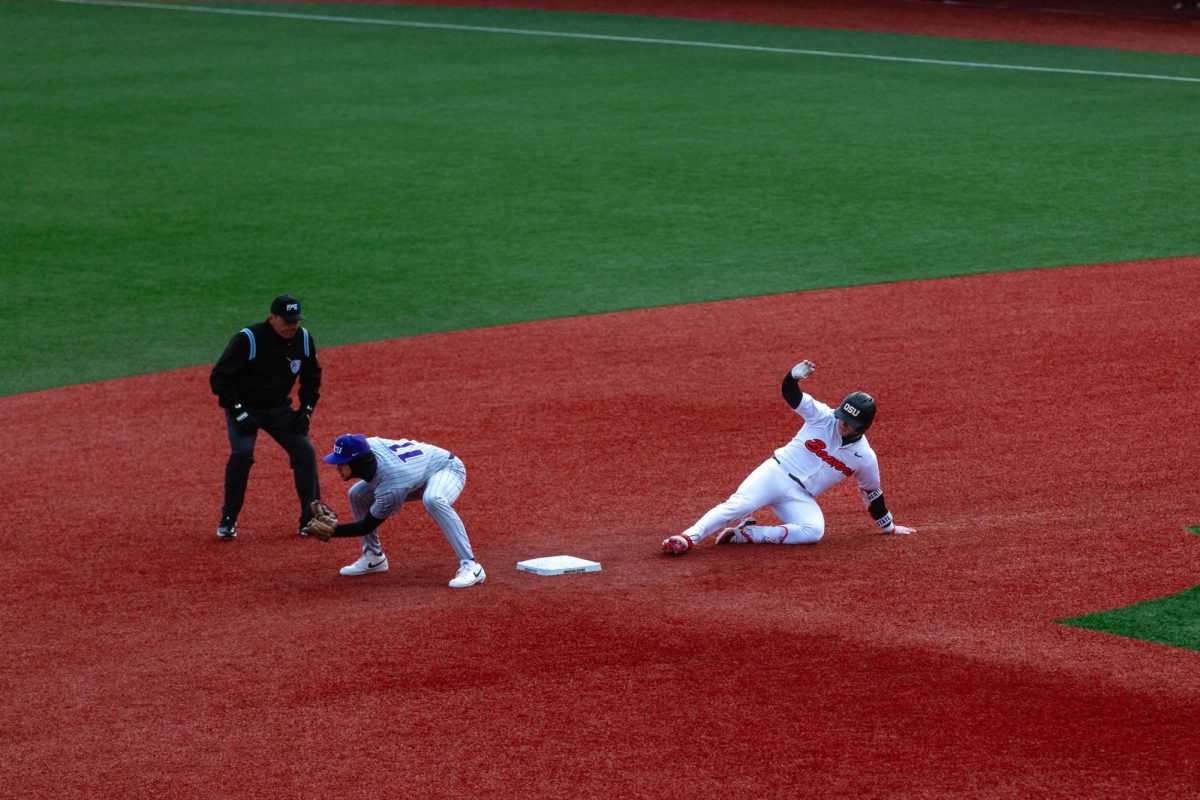
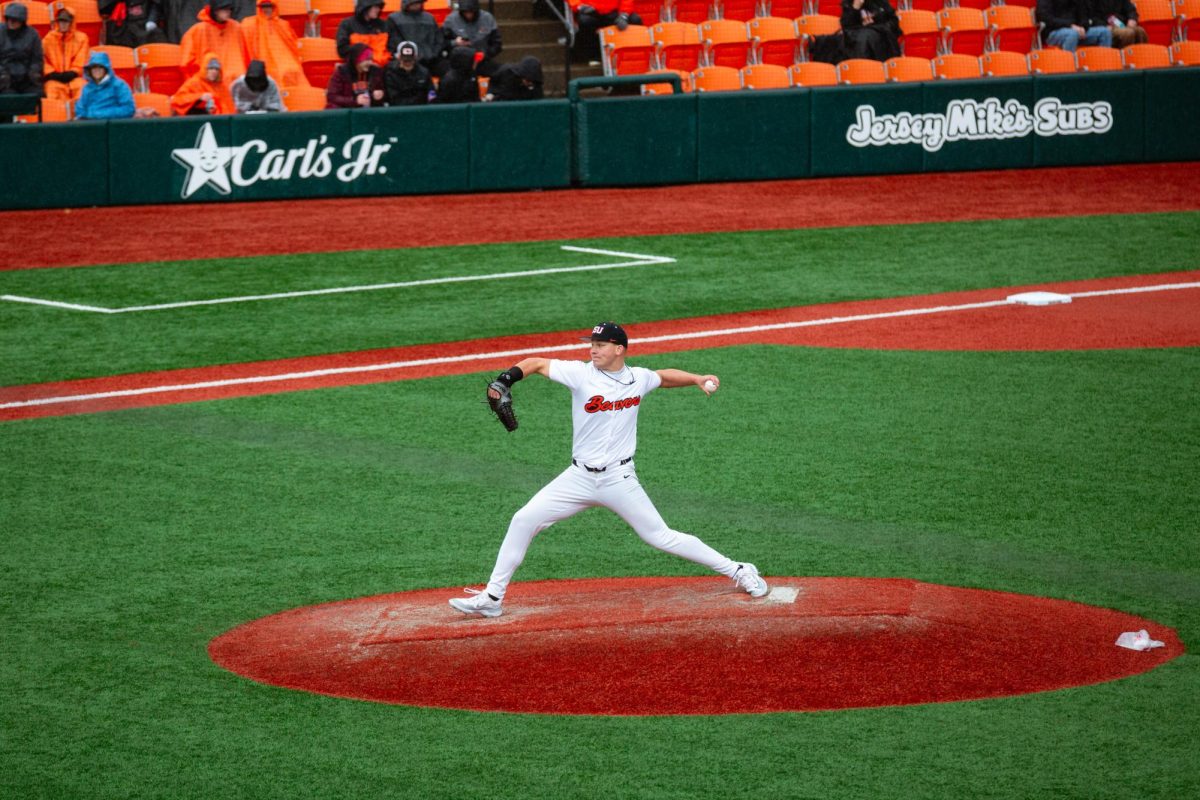























































![Newspaper clipping from February 25, 1970 in the Daily Barometer showing an article written by Bob Allen, past Barometer Editor. This article was written to spotlight both the student body’s lack of participation with student government at the time in conjunction with their class representatives response. [It’s important to note ASOSU was not structured identically to today’s standards, likely having a president on behalf of each class work together as one entity as opposed to one president representing all classes.]](https://dailybaro.orangemedianetwork.com/wp-content/uploads/2025/03/Screenshot-2025-03-12-1.00.42-PM-e1741811160853.png)
























